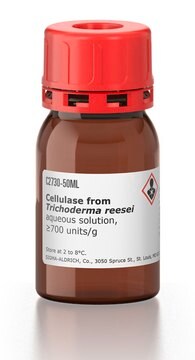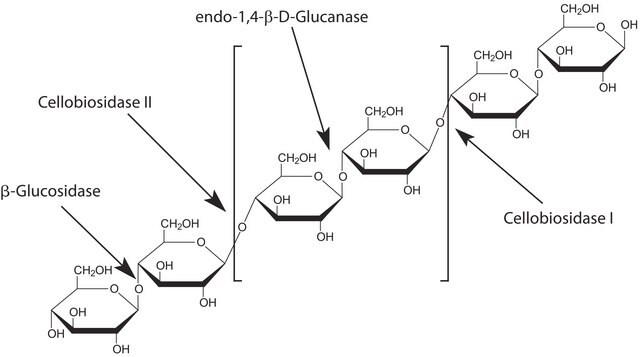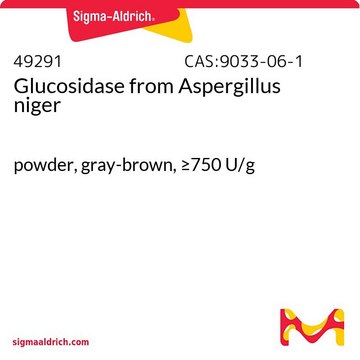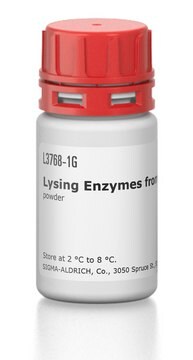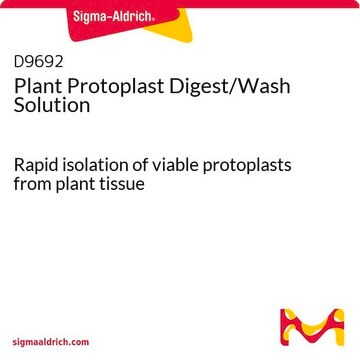219466
CELLULYSIN® Cellulase, Trichoderma viride
Synonym(s):
β-D-glucosidase, endo-β-1,4 glucanase, cellobiohydrolase
About This Item
Recommended Products
biological source
fungus (Trichoderma viride)
form
solid
specific activity
≥10,000 units/g dry wt.
manufacturer/tradename
Calbiochem®
storage condition
OK to freeze
technique(s)
transformation: suitable
color
yellow-white
solubility
water: soluble
suitability
suitable for molecular biology
application(s)
food and beverages
pharmaceutical
shipped in
ambient
storage temp.
2-8°C
General description
Application
- to digest transgenic BY-2 cells exposed to paraformaldehyde fixation
- in the enzyme mix used for in situ hybridization to plant chromosomes
- in the enzyme solution for the transformation of Phytophthora species
- to isolate intact cells and protoplasts from plant tissues
Biochem/physiol Actions
Warning
Unit Definition
Reconstitution
Other Notes
Tomita, Y., et al. 1968. J. Ferment. Technol.46, 701.
Legal Information
Signal Word
Danger
Hazard Statements
Precautionary Statements
Hazard Classifications
Resp. Sens. 1
Storage Class Code
11 - Combustible Solids
WGK
WGK 1
Flash Point(F)
Not applicable
Flash Point(C)
Not applicable
Certificates of Analysis (COA)
Search for Certificates of Analysis (COA) by entering the products Lot/Batch Number. Lot and Batch Numbers can be found on a product’s label following the words ‘Lot’ or ‘Batch’.
Already Own This Product?
Find documentation for the products that you have recently purchased in the Document Library.
Customers Also Viewed
Our team of scientists has experience in all areas of research including Life Science, Material Science, Chemical Synthesis, Chromatography, Analytical and many others.
Contact Technical Service